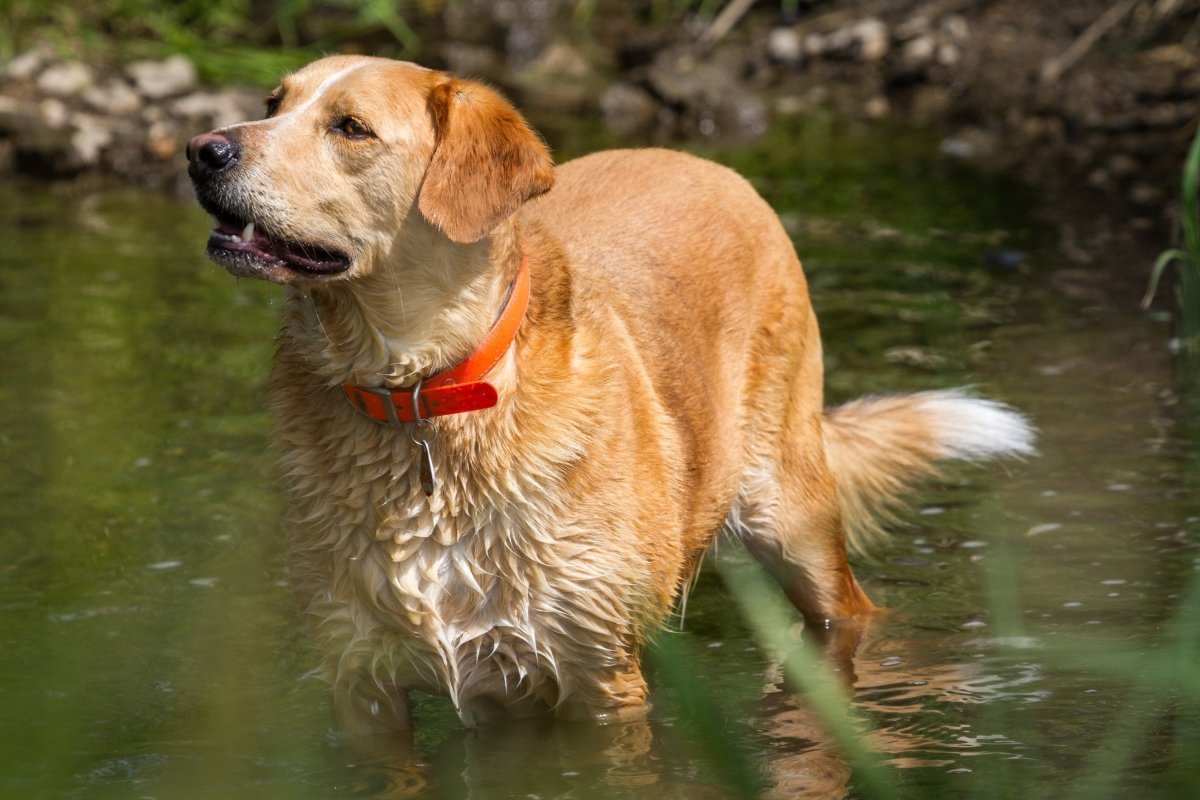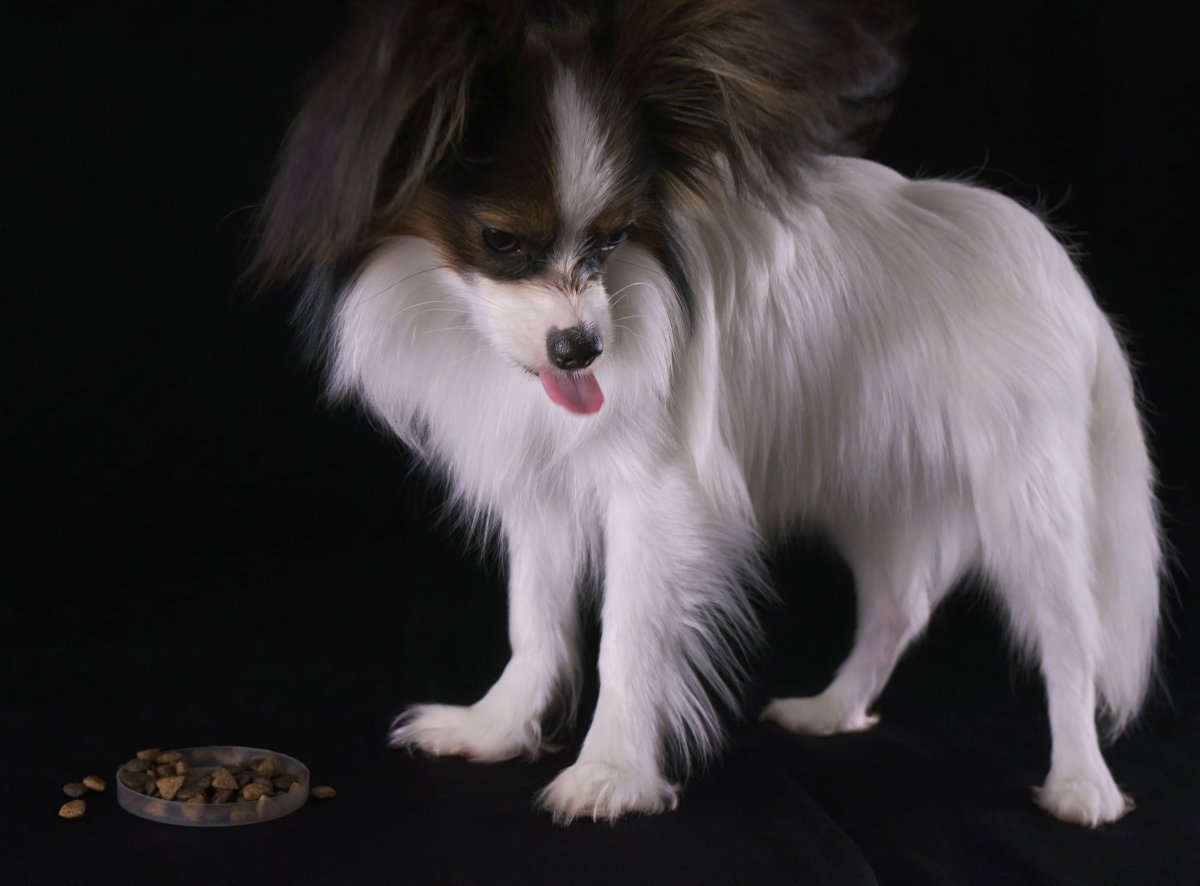Some dandruff on your dog's coat is completely normal and can occur again and again as part of cell renewal. Does your dog have dandruff? Then you shouldn't worry at first. However, dandruff can also get out of hand and become a permanent condition. Read this article to find out when dandruff becomes a problem in dogs and what the causes can be.
Dandruff in dogs: the symptoms
Dandruff in dogs is often caused by excessively dry skin. This is because dry skin leads to itching - the dog scratches itself more often, causing flakes of skin to come off and become visible in the coat. Dandruff is particularly easy to recognize in dogs with dark coats. White or yellow flakes can either appear locally or cover the entire coat if your dog has dandruff.
However, frequent scratching can also introduce germs and bacteria into the open areas, which can lead to inflammation and secondary infections in the animal. Does your dog have dandruff and would you describe the dandruff as advanced? Then pay more attention to other symptoms such as hair loss, bald patches and scabs. If you find these signs in your dog, a visit to the vet should be considered.
While white dandruff is caused by excessively dry skin, yellow dandruff is an indication of excessive sebum production. Does your dog have dandruff that is yellow rather than white? Then your dog's coat is usually very greasy and the yellow dandruff is really sticky. So pay close attention to the type of flakes if your dog has dandruff.
Does your dog have dandruff? How to recognize causes and the right treatment
Does your dog have dandruff? Then there are several possible causes. It may be a temporary change in the skin, which can be triggered by a change in the weather, a change of coat or cell renewal. Some dogs react to these types of changes with dandruff, which should disappear on its own after a while. By regularly grooming your dog's coat, you can optimally support the cell renewal of your four-legged friend, promote blood circulation in the skin and remove dirt particles and dead skin cells. Does your dog have dandruff? The right coat care can often help him quickly!
Dandruff is particularly common in dogs during the cold season. The dry heating air and frequent bathing can dry out the skin and damage the pH value and the skin's natural oil layer. If your four-legged friend hasn't been able to avoid a puddle and has even rolled around in the mud, there's unfortunately no getting around a bath. To cleanse your pet's skin particularly gently, we recommend our Coat Harmony Shampoo Sensitive, which is adapted to the pH value of sensitive dog skin and does not degrease it. This prevents your dog from having dandruff and still keeps it well-groomed.

Dog dandruff - the possible causes at a glance
- Incorrect nutrition - under- or oversupply of nutrients
- Allergies and intolerances
- Change of coat
- Parasite infestation
- Psychological problems in dogs
- A disturbed gastrointestinal environment
- Dry heating air
- Frequent bathing - resulting in a disturbed pH value
- Diseases such as seborrhea
Does your dog have dandruff? How to prevent this scenario!
If your four-legged friend's illnesses have been ruled out, you can bring your pet's skin and coat back into balance by adjusting their diet. The following food supplements, which contain valuable nutrients for a healthy coat and vital skin, can help if your dog has dandruff:
Brewer's yeast: Does your dog have dandruff? Try brewer's yeast! This natural product is known for its high vitamin B content and its positive effect on the skin and coat. Brewer's yeast is obtained from beer sludge, the waste product of beer production, and then dried. The yeast cultures it contains have an effect on the gastrointestinal tract and thus provide important microorganisms for the development of the intestines. As a side effect, brewer's yeast contributes to a shiny coat and vital skin, for example in the form of brewer's yeast powder for dogs.
Salmon oil: Salmon oil for dogs contains the essential omega-3 fatty acids that support the dog's natural metabolism. The fatty acids eicosapentaenoic acid (EPA) and docosahexaenoic acid (DHA) are present in the cell membrane and contribute to the elasticity and fluidity of the membranes. Salmon oil is also often used as a dietary supplement in the human sector. Alternatively, you can also mix salmon oil capsules into your dog's food - depending on what your four-legged friend accepts better.
Coconut oil: Organic coconut oil has also proven its worth as a feed supplement and for grooming dogs. It contains the important lauric acid, a fatty acid that is found in up to 53% of coconut oil. The medium-chain fatty acid is important for energy metabolism and the immune system. Does your dog have dandruff? Then fight it with an intact metabolism and a strengthened immune system!
Propolis: This natural bee product is used by insects as a building material to seal the hive. It protects against germs and promotes wound healing. Propolis powder is particularly recommended for dogs that scratch more often. It strengthens the immune system and maintains healthy skin, so you can say goodbye to dandruff in your dog.
Other proven feed supplements for healthy skin and a vital coat are hemp oil, linseed oil and seaweed meal. If you are not sure which supplements are suitable for your four-legged friend, simply contact our team of vets, veterinary practitioners and animal nutrition experts. You can always rely on free professional advice on why your dog has dandruff.




